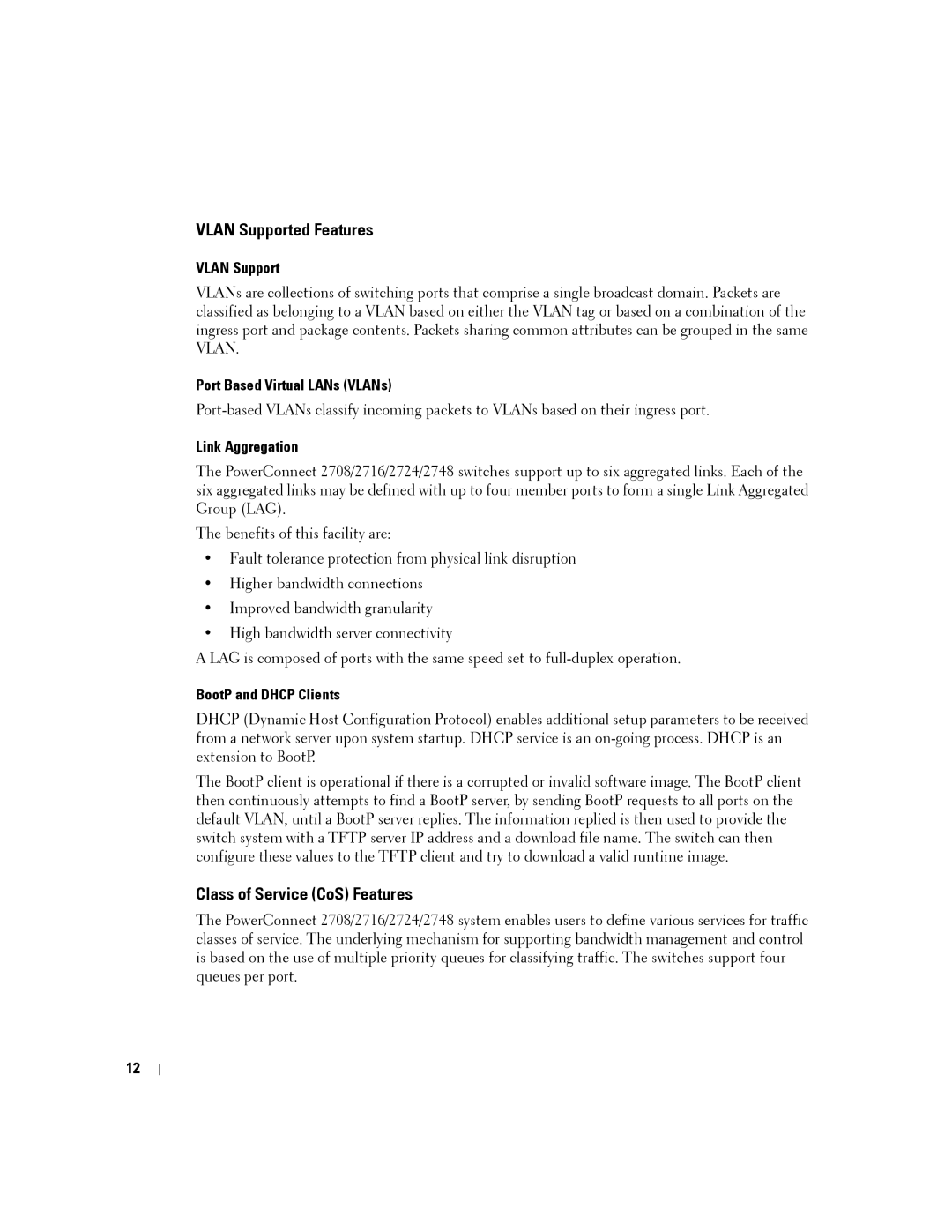VLAN Supported Features
VLAN Support
VLANs are collections of switching ports that comprise a single broadcast domain. Packets are classified as belonging to a VLAN based on either the VLAN tag or based on a combination of the ingress port and package contents. Packets sharing common attributes can be grouped in the same VLAN.
Port Based Virtual LANs (VLANs)
Link Aggregation
The PowerConnect 2708/2716/2724/2748 switches support up to six aggregated links. Each of the six aggregated links may be defined with up to four member ports to form a single Link Aggregated Group (LAG).
The benefits of this facility are:
•Fault tolerance protection from physical link disruption
•Higher bandwidth connections
•Improved bandwidth granularity
•High bandwidth server connectivity
A LAG is composed of ports with the same speed set to
BootP and DHCP Clients
DHCP (Dynamic Host Configuration Protocol) enables additional setup parameters to be received from a network server upon system startup. DHCP service is an
The BootP client is operational if there is a corrupted or invalid software image. The BootP client then continuously attempts to find a BootP server, by sending BootP requests to all ports on the default VLAN, until a BootP server replies. The information replied is then used to provide the switch system with a TFTP server IP address and a download file name. The switch can then configure these values to the TFTP client and try to download a valid runtime image.
Class of Service (CoS) Features
The PowerConnect 2708/2716/2724/2748 system enables users to define various services for traffic classes of service. The underlying mechanism for supporting bandwidth management and control is based on the use of multiple priority queues for classifying traffic. The switches support four queues per port.
12
